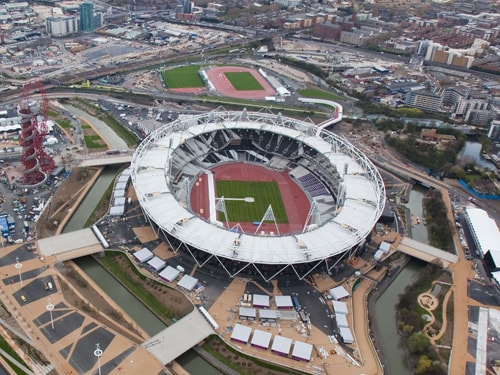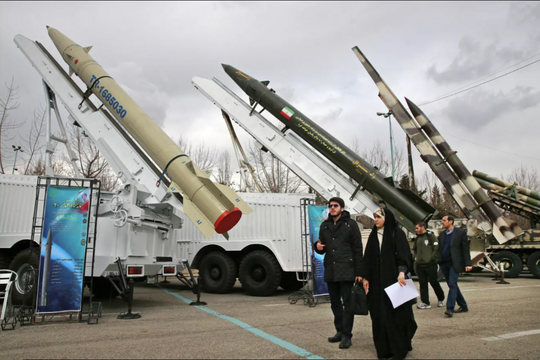Olympics - benefits and burdens
(Baonghean) - The Olympics - the biggest sporting event on the planet always attracts the attention of sports fans around the world. However, whether hosting an Olympics really brings economic benefits to the host country is a big question. Let's take a look at some analysis to get the most general view of the economic benefits of an Olympics.
 |
| Spectacular images at the opening ceremony of the Rio 2016 Olympics. Photo: New York Times. |
The cost of hosting an Olympic Games is quite high, for example, each participating country had to spend at least 20 million USD to compete for the 2016 Olympics. That is not to mention the huge costs of up to billions of USD for organizing an Olympic Games. Some cities have even failed in hosting races such as Istanbul, Turkey (5 times) or Madrid, Spain (2 times). So what makes hosting an Olympic Games so important?
Economic benefits?
The two economic benefits most expected by many Olympic host countries are increased employment and increased tourism. The Sydney 2000 Olympics were one of the few recent Olympics to have delivered these benefits.
When chosen to host the 2000 Olympics in 1993, host country Australia spent a total of 4.8 billion USD to organize this event, and the largest part of the cost was for infrastructure construction.
The organizers prioritized the construction of permanent structures in the hope of bringing benefits to the local area later. And the 2000 Olympics brought $3 billion to Australia. The most obvious effects were that about 100,000 new jobs were created due to the Olympic effect, and the Olympics increased the number of tourists to Australia by 1.6 million.
The burdens
At a cost of $11 billion, the Athens Olympics were the most expensive Olympics to date. Immediately after hosting the Olympics, Greece was saddled with a massive debt of 168 billion Euros, or 110.6% of GDP, more than twice the Eurozone limit.
This made Greece the first European country to be placed under financial supervision by the European Commission (EC) in 2005. Although the hosting of the 2004 Olympics could not have been the sole cause of the Greek economy's fall into crisis that year, it was a manifestation of the government's reckless spending on unsustainable loans.
Furthermore, the investments made for the Olympics in Greece did not seem to have a long-term effect, for example, many stadiums and equipment were no longer used after the Olympics. The tourism industry also did not benefit much from the Olympics when in the following years, tourists chose other destinations other than Greece but Croatia or Türkiye with cheaper costs as well as better promotion strategies.
Or another example is the 2008 Beijing Olympics. Although it cost 40 billion USD and was the most expensive Olympics on the planet to date, this event was assessed to have had a negligible impact on the Chinese economy.
 |
| The 2012 Olympics were held in London. |
Meanwhile in the UK, during the London Olympics, the number of visitors to the British Museum dropped to 480,000 compared to 617,000 in the same period last year. In the month of the Olympics, the number of foreign tourists to the UK fell by 5% compared to the previous year.
Despite the economic, political, and government crisis that Brazil has been facing in recent decades, the Rio Olympics are still costing a total of $12.2 billion to host. The financial pressure has even forced the Rio government to declare a budget emergency in June and rely on federal aid to pay pensions and civil servants. In addition, 60% of Brazilians surveyed believe the Olympics will cost them more than they will benefit.
What does the Olympics bring to the host country?
It can be seen that the economic benefits from the Olympics can hardly compensate for its costs due to the facilities serving the competition. Stadiums are considered expensive but economically inefficient projects.
 |
| A woman stands on the rooftop of a destroyed house next to a hotel tower built for the 2016 Olympics. Photo: Bloomberg. |
That is also the reason why these projects are almost built with tax money and do not attract private investment. Or the road network, the infrastructure connecting the competition venues, although carefully invested, is not used effectively after the Olympics because it does not serve the residential areas.
Therefore, a long-term plan is necessary for construction investments at the Olympics. This has been considered by recent Olympic host countries, when they have focused more on building infrastructure such as highways or airports to bring long-term benefits.
So the economic benefits of hosting the Olympics seem ambiguous. Some argue that the Olympics should not be viewed solely in economic terms. Kuper writes on ESPNFC that we are misunderstanding the nature of a major sporting event, which is not an economic stimulus. Hosting a sporting event can increase the happiness index of local people. Meanwhile, economist Matheson from Massachusetts compared ''The Olympics is like a wedding, it doesn't make you rich but it makes you happy''.
Phan Vu
| RELATED NEWS |
|---|







